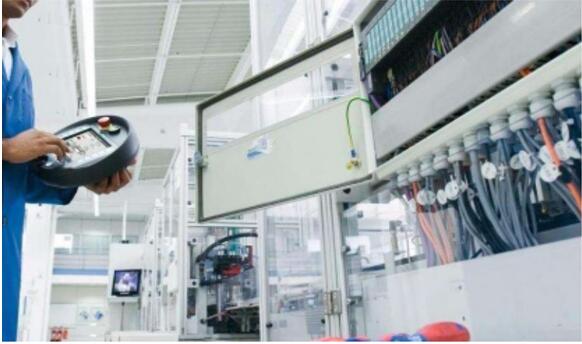What are the precautions for the maintenance and care of industrial cameras?
As a key component in a machine vision system, the performance and longevity of an industrial camera depends greatly on routine maintenance and care. Below are some considerations on the maintenance and care of industrial cameras to ensure their long-term stable operation and optimal performance.


1. Cleaning and dusting
① The lens and housing of the industrial camera should be cleaned regularly to avoid accumulation of dust and dirt, which may affect the image quality.
② Use a soft cloth or special lens cleaning paper to gently wipe the lens and avoid using rough materials that may scratch the lens.
2. Environmental control
① The industrial camera should be stored and operated within the manufacturer's recommended temperature and humidity range to avoid thermal shock or condensation.
② Prolonged exposure to direct sunlight may damage the camera's sensor and electronic components.
3. Moisture and water resistance
① When using the industrial camera in a humid environment, measures should be taken to prevent the ingress of moisture, such as using a moisture-proof box or desiccant.
② If the imager is equipped with a waterproof function, make sure that all seals and covers are properly installed to prevent moisture from entering.
4. Power management
① Make sure that the industrial camera is connected to a stable power source to avoid voltage fluctuations or sudden power failures, which may damage the camera's electronic components.
② Do not exceed the power input specifications of the imager to avoid damage.
5. Mechanical protection
① Avoid shock or excessive vibration to the camera during installation and operation.
② Install the imager properly according to the manufacturer's instructions to ensure that it is fixed and stable and to avoid damage caused by improper installation.
6. Software updates
① Check and update the camera's firmware and related software regularly to ensure optimal performance and compatibility.
② Back up the camera's settings before updating in case problems occur during the update process.
7. Storage and transportation
① When not in use, store the industrial camera in a dry, cool and dust-free environment.
② During transportation, use appropriate packaging materials to protect the camera from collision and vibration.
8. Regular inspections
① Perform regular visual inspections of the camera to check for any visible damage or wear.
② Perform regular performance tests to ensure that the camera's image quality and capture speed meet the requirements.
9. Use appropriate accessories
① Use lenses that are compatible with the camera to ensure optimal imaging.
② Use high quality cables and connectors to minimize signal loss and interference.
10. Professional Maintenance
① Seek the help of a professional technician if there is a problem with the camera rather than attempting repairs on your own.
② Utilize the manufacturer's warranty and technical support services to ensure that the camera is properly maintained and repaired.
By following these maintenance and care considerations, you can significantly extend the life of your industrial camera and ensure that it provides reliable performance in a variety of industrial applications.
Product recommendation
TECHNICAL SOLUTION
MORE+You may also be interested in the following information
FREE CONSULTING SERVICE
Let’s help you to find the right solution for your project!


 ASK POMEAS
ASK POMEAS  PRICE INQUIRY
PRICE INQUIRY  REQUEST DEMO/TEST
REQUEST DEMO/TEST  FREE TRIAL UNIT
FREE TRIAL UNIT  ACCURATE SELECTION
ACCURATE SELECTION  ADDRESS
ADDRESS Tel:+ 86-0769-2266 0867
Tel:+ 86-0769-2266 0867 Fax:+ 86-0769-2266 0867
Fax:+ 86-0769-2266 0867 E-mail:marketing@pomeas.com
E-mail:marketing@pomeas.com
